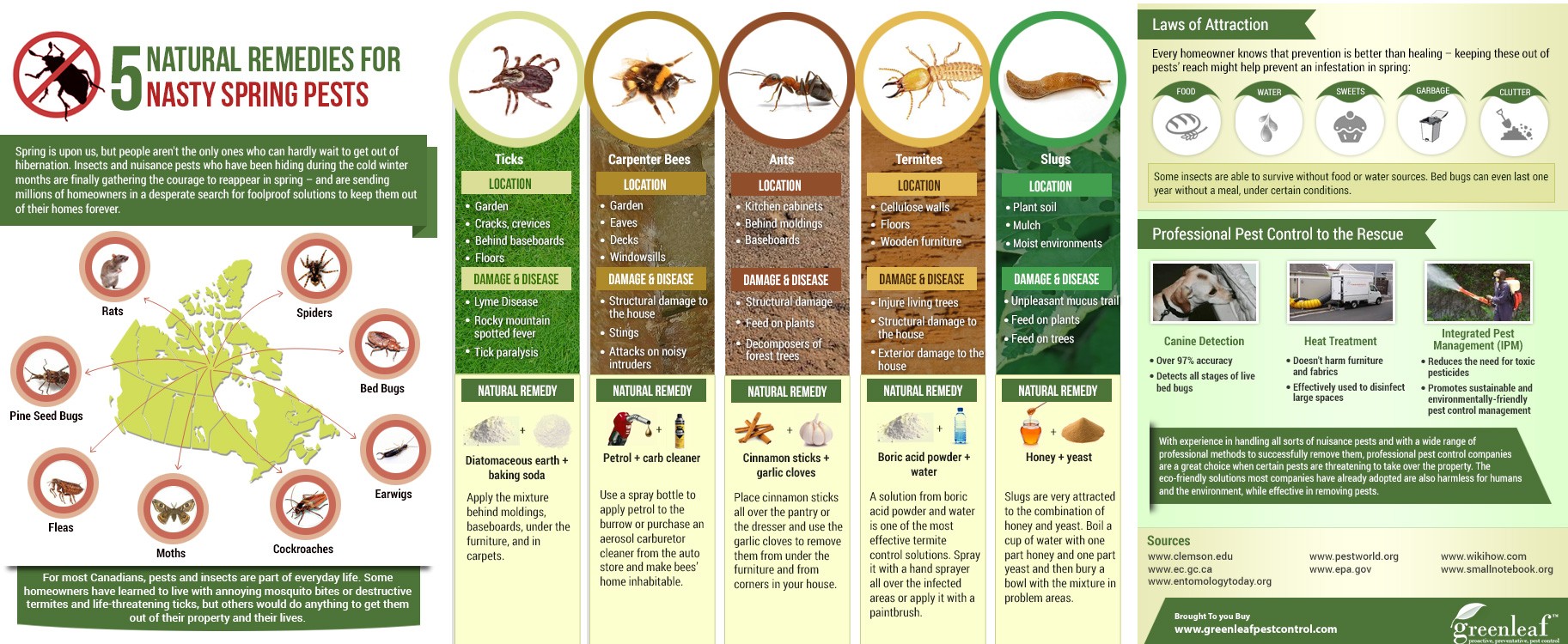Recognizing The Ecological Consequences Of Pest Control Approaches: Vital Details To Be Familiar With
Recognizing The Ecological Consequences Of Pest Control Approaches: Vital Details To Be Familiar With
Blog Article
Content Author-Atkinson Whitley
They claim 'avoidance is far better than remedy,' and this proverb holds true when it concerns pest control. You may be aware of the value of keeping your home or business without insects, yet have you ever considered the ecological influence of the methods made use of to accomplish this?
In this conversation, we will certainly discover the different pest control approaches offered and their possible impacts on the atmosphere. From using chemical pesticides to all-natural pest control methods and sustainable approaches like incorporated insect monitoring, there is much to learn more about the selections we make and their impact on the world around us.
So, distort up and prepare to reveal the fact behind insect control approaches and their ecological repercussions.
Chemical Pesticides and Their Ecological Impact
Chemical chemicals have a substantial environmental influence, which can be better understood by examining their use and impacts.
When you use chemical pesticides to control parasites, they can wind up damaging not just the targeted insects yet additionally beneficial bugs, birds, and various other animals. These pesticides typically stick around in the setting, infecting soil, water, and air. They can additionally gather in the food web, posturing a threat to human health.
In addition, chemical pesticides can interrupt ecosystems by killing off all-natural killers of parasites, bring about a discrepancy in the environment. In addition, some pesticides have actually been connected to the decrease of pollinators like , which are critical for plant reproduction.
It is essential to take into consideration these ecological impacts when thinking about bug control techniques.
Natural Pest Control Methods and Their Eco-Friendliness
Natural parasite control techniques provide an environment-friendly option to chemical pesticides. By utilizing natural active ingredients and approaches, you can successfully handle bugs while decreasing injury to the environment. Right here are four green bug control approaches to consider:
1. Organic control: Introduce all-natural killers, such as ladybugs or nematodes, to manage pest populations normally.
2. Physical obstacles: Usage nets, screens, or row covers to physically avoid bugs from reaching your plants.
3. Companion planting: Expand pest-repelling plants alongside your crops to discourage insects normally. For example, growing marigolds can drive away aphids and various other pests.
4. Self-made solutions: Create DIY pest control services using active ingredients like vinegar, baking soft drink, or essential oils. These all-natural treatments can help repel insects without harmful chemicals.
Integrated Bug Monitoring: A Sustainable Method
To effectively handle insect populations while reducing injury to the setting, think about embracing an incorporated parasite management method, which concentrates on lasting techniques.
Integrated Bug Management (IPM) is an alternative approach that incorporates various insect control approaches to attain lasting pest administration objectives. It intends to decrease using chemical pesticides and rather highlights prevention, surveillance, and making use of non-chemical controls.
By integrating numerous strategies, such as biological control, cultural methods, and mechanical approaches, IPM offers a reliable and sustainable remedy for parasite control.
average cost for rat extermination on the setting however also advertises the overall wellness of ecosystems.
link web site , now you understand the ins and outs of pest control methods and their impact on the setting.
From the dangerous effects of chemical pesticides to the eco-friendliness of natural insect control approaches, it's clear that we have to focus on sustainable strategies like integrated bug monitoring.
Similar to a delicate ecological community, locating the best balance is critical for protecting our setting and maintaining bugs away.
